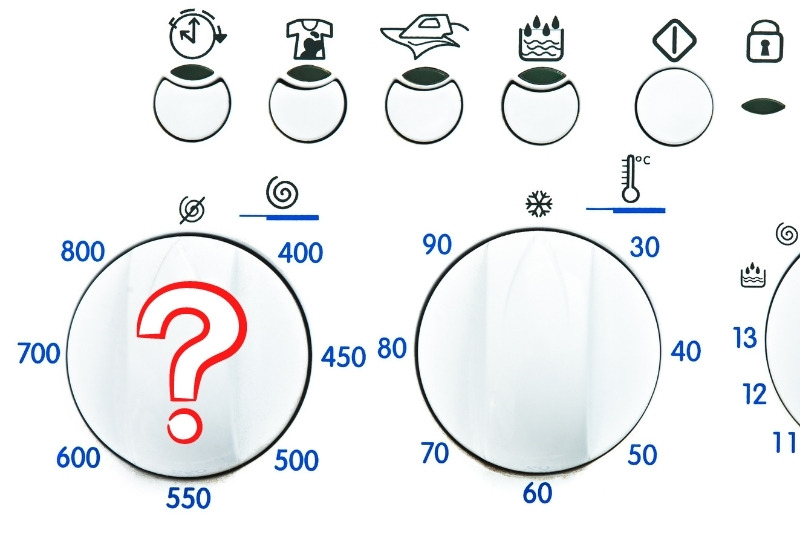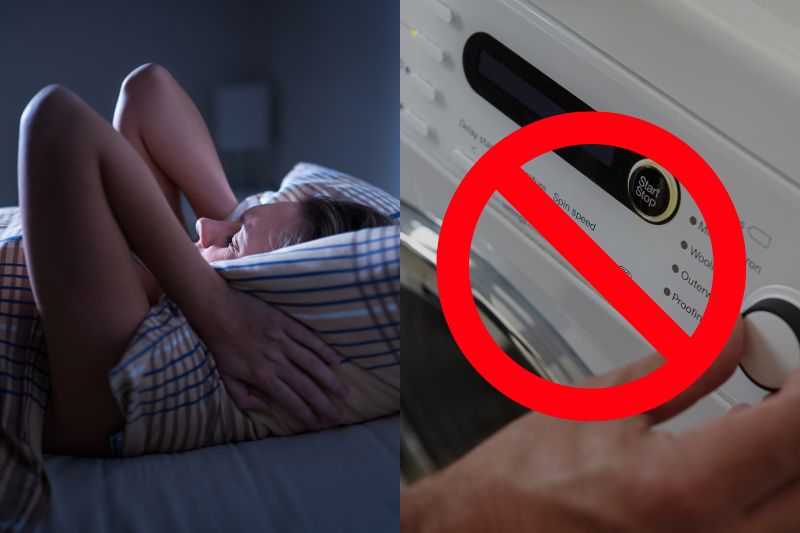When economic times are difficult and energy bills are high, homeowners turn to all kinds of ‘hacks’ to save money.
One common recommendation on the internet is to use your washing machine or other appliances overnight when some energy companies make their tariff rates cheaper.
But with UK laws around noise dictating that noise should be kept to a minimum after 11 pm at night, is it in fact illegal to run your washing machine at night, or at minimum, disruptive to neighbours?
Let’s dive in and find out.
Is It Illegal to Use Your Washing Machine at Night?
It is not illegal to use your washing machine at night, but it could be bad manners if it disturbs your neighbours.
Councils can investigate complaints of noisy neighbours, especially if the noise occurs between 11 pm and 7 am. If the council deem the noise to be excessive, they can issue a warning letter under the 1996 Noise Act.
However, this is more likely to apply to things like loud music rather than washing machines, which are considered a “general living noise”.
To establish whether or not using your washing machine at night will be a nuisance to your neighbours, consider your proximity.
If you live in a terraced house or an apartment and can hear your neighbours moving, there’s a high likelihood they’ll be able to hear your washing machine at night, especially with fewer other noises to cancel out the sound.
If your property is detached and your neighbours are a reasonable distance away that you can’t hear sounds from each other’s homes, you shouldn’t encounter any problems by using your washing machine during the night.
Why Do People Use Their Washing Machines at Night?
There are plenty of reasons it might be more convenient to do your washing during the evening or late at night.
Many professionals are simply too busy with working, caring responsibilities, and childcare to carry out household chores during the day – especially if they don’t work remotely.
Plus, some energy companies charge energy use at a tariff rate that’s cheaper depending on which time of the day/night you use your appliances.
These cheaper times tend to run from 11 pm to 7 am, making it more economical to wash your clothes late in the night or in the early hours of the morning.
How to Make Your Washing Machine Quieter

If you want to run your washing machine at night and reduce the chances of disturbing your neighbours, here’s how to make it quieter.
Don’t overload the machine
When the washing machine has been heavily loaded, it tends to wobble and vibrate even more than usual during the spin cycle.
To reduce the noise of your washing machine at night, try loading fewer items of clothing into the machine.
There should be a gap between the clothes and the top of your washing machine drum to ensure the machine isn’t overloaded.
Turn down the spin speed

Your washing machine is at its noisiest during the spin cycle. To reduce how loudly your washing machine spins, you can reduce the speed of the spin.
Do consider, however, that by doing so your clothes will come out wetter than they would with a super-fast spin.
Turning your spin speed down works if you plan on tumble drying your clothes afterwards, but if you turn it too low you might struggle to dry them indoors.
Place an anti-vibration mat under the washing machine
The noise from your washing machine comes mostly from the appliances vibrating, moving, and knocking against other objects during the spinning cycle.
One of the most effective ways to keep your washing machine quiet during the night is by investing in an anti-vibration mat.
These mats are made of a specially-designed type of rubber that absorbs and therefore dampens the noise of your washing machine. You might also find anti-vibration mats under the names ‘anti-slip mats’ or ‘soundproof mats’.
Remove all items from the top of your washing machine
If your washing machine lives in a high-traffic area, it can easily end up covered in ornaments like vases or household items like laundry baskets. But the more objects that your washing machine touches, the louder it will be.
Not to mention that the washing machine can easily knock items off during the spin cycle, so it’s not the best safety idea, either.
If you have to put items on top of your washing machine because of storage space, softer items like towels and clothing will be less noisy.
Get a newer, quieter, washing machine
Unfortunately, many older models of washing machines are noisier than newer alternatives. If your washing machine is past its best and its loudness makes it inconvenient to run, consider investing in a new quieter machine that does the job while producing less noise.
Most washing machines currently on the market specify volume values you can check to establish just how loud it will be when it spins.
Hire a technician
Nine times out of 10, the noise produced by a washing machine is produced as a result of the spin cycle and is as loud as expected.
If your washing machine starts producing a sound that you’ve never heard before that’s louder than usual, or you can hear mechanical parts moving or whirring inside the machine this can be a sign that there’s a technical issue at play.
It’s better to be safe than sorry, so if you hear unexpected noises coming from your washing machine, hire a technician to come out and take a look.
The Bottom Line
While using your washing machine at night isn’t illegal, it can cause problems for neighbours, especially if you live in a terraced house or apartment complex.
A YouGov survey found that most Britons would find it unacceptable to be able to hear a neighbour’s washing machine at night, especially late at night or very early in the morning.
Where possible, wash your clothes during the day to avoid disturbing the homes that surround yours.
If that’s not an option for you, take measures to reduce the noise of your washing machine, such as turning down the spin speed, putting down an anti-vibration mat, and removing items from the top of your machine.

Lover of coffee, painting, and all things cute and fluffy. I’m always on the lookout for easier, more gentle ways to tackle awful household chores.






